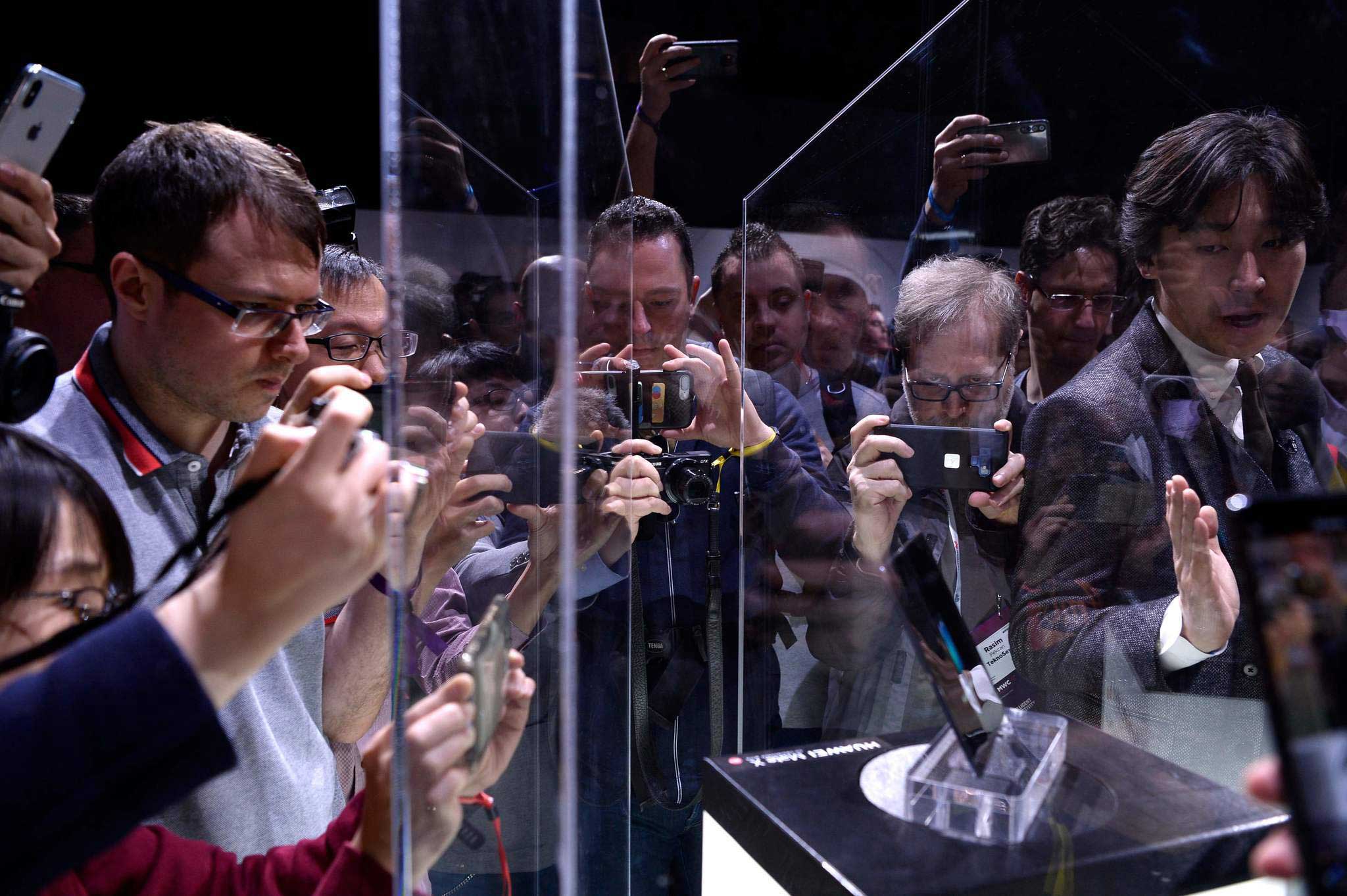Huawei believes politics, trade and technology are behind the U.S. vendetta against it. U.S. officials say Huawei is the worst of many Chinese companies whose close ties to the Chinese government and military put American national security at risk. Moreover, they say Huawei and other export-oriented Chinese companies have no choice but to follow the dictates of the state and the communist party should either want to attack or otherwise damage foreign adversaries.
Is there a smoking gun? Not exactly. But U.S. officials describe a long list of wrong-doing they believe proves the company to be a bad actor. U.S. law enforcement has stepped up and toughened its attacks on Huawei in recent years. It has charged Meng Wanzhou, Huawei’s CFO and the daughter of its founder, Ren Zhengfei, with fraud. It has taken an old civil suit that Huawei had settled, and turned it into a criminal indictment. The Trump administration blacklisted Huawei last May, banning U.S. firms from selling it components or software, a move Huawei said would have cost it billions of dollars in lost business had Trump not then offered a series of 90-day reprieves, the latest of which is still in effect.
Companies often get hit with litigation – think of the patent wars between Apple v. Samsung that have lasted years. Huawei officials have shown The Times studies they say show Huawei has been named in fewer lawsuits involving intellectual property (patents, trade secrets, trademarks, and copyright) than other big tech companies. Huawei also says that neither the company nor any of its key executives have been convicted of crime. And it says that most of the cases brought against it were dismissed or resulted in small settlements.
Still, what’s striking here is the broad range of allegations that have been leveled against Huawei outside China since it was founded in 1987, as well as the role the U.S. officials, agencies and prosecutors have played in keepings tabs on it or in bringing criminal charges against it. In the years since Huawei was founded in 1987, some of its top executives have been charged with violating or skirting U.S. sanctions against Iran or North Korea. In addition, several lower-level employees have been accused of breaking apart other companies’ technology in order to photograph or copy it. In almost every case Huawei has denied the charges against it, and it has been willing to hire top-flight lawyers and lobbyists to successfully defend it in the U.S. and in other jurisdictions outside China.
Read more: ‘We were fighting for survival’ -- How Huawei is enduring America’s war against it
Accusations against Huawei
This timeline is broadly categorized by accusations levied against Huawei and the reaction from the U.S. government and others, who have often moved to retaliate against the company or curb its actions:
Timeline categories
2003
Accused of theft
Cisco fires the first shot - the first company to sue Huawei over theft of its technology.

Cisco filed suit in eastern Texas in 2003 alleging Huawei violated at least five patents and copied Cisco’s operating system source code verbatim, command line interface, manuals and help screens. Even the bugs were identical, Cisco alleged. “This lawsuit will be a precedent for enforcement around the world,” Terry Alberstein, director of Asia-Pacific corporate affairs for Cisco, said at the time. Cisco and Huawei settled in 2004 after Huawei agreed to change its source code and stop using some technology. The terms of the settlement were confidential.
June 23, 2004
Accused of corporate espionage
A Huawei Employee is caught - apparently red handed - spying at a trade show

The Supercomm telecom trade show was winding down and most people had gone home when Zhu Yibin, a China-based employee of Huawei, was caught by security June 23 photographing the circuit boards of an optical networking device owned by Fujitsu Network Communications after removing the casing, according to a report by Light Reading. Zhu also had two pages of proprietary AT&T diagrams and a list of six vendors to visit, with two high-tech products highlighted.
Huawei said that it was a “misunderstanding” and that Zhu, on his first overseas trip, spoke “poor English” and was “inexperienced.”
2005
Accused of bad business practices
RAND Corp. reports that Huawei worked closely with China’s military.

In 2005 the RAND Corporation, produced a report for the U.S. Air Force, “A New Direction for China’s Defense Industry,” which argued China’s booming IT firmsi partnered with the military and state-owned research organizations to advance China’s military. Companies such as Huawei, chosen as “national champions” got staff and funding from the military, state banks and other agencies. Huawei denies close connections with the military.
July 2007
Accused of lying
The FBI interviews Huawei’s Ren Zhengfei – and concludes that he lied.

In July 2007, FBI officers interviewed Huawei founder Ren Zhengfei on whether Huawei had had dealings with Iran in breach of U.S. sanctions. His denial was a lie, according to a 2019 U.S. fraud indictment of his daughter, Huawei executive Meng Wanzhou. Meng is charged with fraud, accused of misleading banks by denying Huawei’s control over Hong Kong-based Skycom Tech, a company doing business with Iran. Huawei and Meng deny any wrongdoing.
2007
Security threat
This time, it’s U.S. intelligence spying on Huawei in Operation Shotgiant.

In 2007, the U.S. National Security Agency hacked Huawei and spied on executive emails, calling it a “unique” threat and attempting to find out about links with the People’s Liberation Army. It also gained access to the source code of some Huawei products, according to documents leaked by former intelligence contractor Edward Snowden and reported in the New York Times and Der Spiegel in 2014.
“We currently have good access and so much data that we don't know what to do with it,” the NSA wrote, according to Der Spiegel. But no U.S. agency has ever produced evidence of direct links between Huawei and the People's Liberation Army.
2008
Security threat
The U.S. blocks Huawei from buying part of 3Com, a U.S. firm selling networking security software to the U.S. military.

In 2003 3Com, a U.S. manufacturer of router and networking products in China, formed a joint venture with Huawei. Five years later the Committee on Foreign Investment in the United States (CFIUS) blocked Huawei’s bid to buy 16.5% of 3Com, which was supplying networking security software to the U.S. military, according to the Financial Times. The deal was blocked over concerns in the Pentagon and Department of Homeland Security that Chinese spies could hack the U.S. military using Huawei’s equipment, the New York Times reported.
2008
Security threat
Leaked documents show Huawei secretly helped North Korea build its wireless mobile system, possibly breaching a U.S. export ban.
Huawei worked secretly with Chinese company Panda International Information Technology for at least eight years to build and maintain North Korea’s wireless mobile system, according to documents leaked to the Washington Post by a former Huawei employee last summer. If Huawei supplied Panda technology containing substantial U.S. components without a license, this would have violated a U.S. export ban on Panda.
2009
Accused of corporate espionage
Caught red- handed again? A Huawei employee tries to extract data from an Indonesian mobile operator.
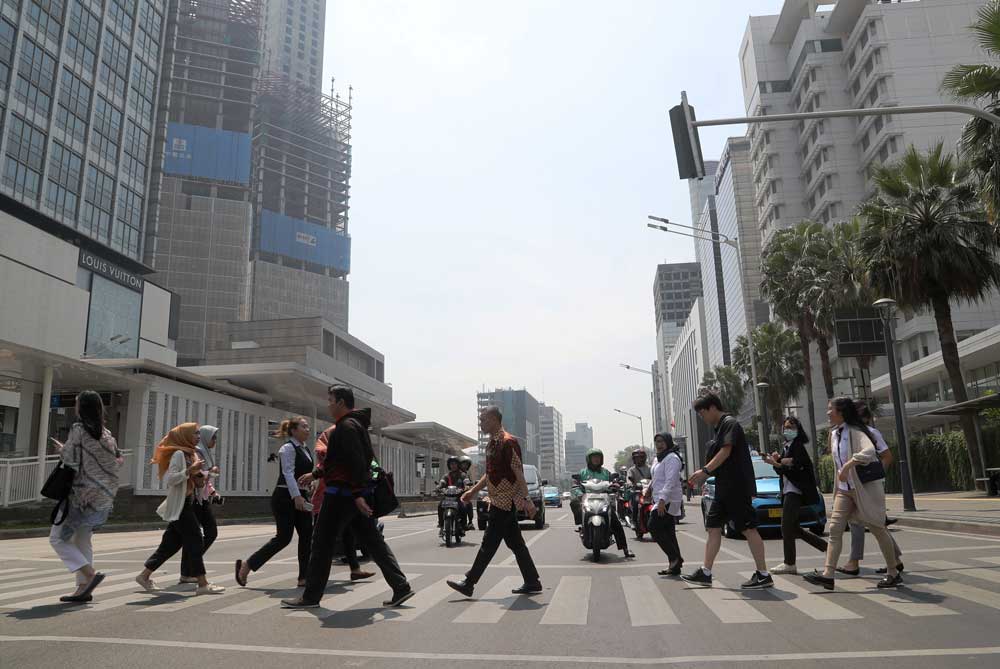
In March 2009, in Indonesia, a Huawei employee visiting Indonesian mobile operator PT Excelcomindo Pratama was caught trying to download data from the computer of a manager onto a thumb drive, Reuters reported. Huawei said he acted alone and apologized to the company. Excelcomindo then-President Director Hasnul Suhaimi told Reuters, “Huawei has apologized and explained it was not intentional.” The employee was suspended and returned to China.
2010
Government intervention
The U.S. government stops Huawei from buying tech company 3Leaf.
In May 2010 Huawei tried to acquire the patents, servers and employees of an insolvent California server technology company 3Leaf. The Committee on Foreign Investment in the United States intervened, forcing Huawei to give up plans to acquire the company or hire its ex-staff.
June 2010
Accused of bad business practices
Why is Huawei tech so cheap? Because China subsidizes Huawei, breaching global trade rules, rivals say.

In June and September 2010, the EU Commission investigated a complaint that the Chinese state arranged massive tax breaks, cheap loans and research subsidies to Huawei and another China tech firm ZTE enabling them to undercut rivals’ prices, against international trade rules. The complaint came from a Belgian wireless technology firm, Option.
Huawei denied the accusations. The Belgian firm dropped its complaint when it made a deal with Huawei. The Chinese firm paid it 45 million euros to license its technology and buy a subsidiary that made semiconductors. Two years later in 2012, Mike McCarthy, chief legal officer for Californian tech company Infinera Corp., offered similar testimony before the U.S.-China Economic and Security Review Commission.
July 2010
Accused of theft
A Huawei worker is accused of sending his CEO technical documents marked “Motorola Confidential Proprietary” on every page.
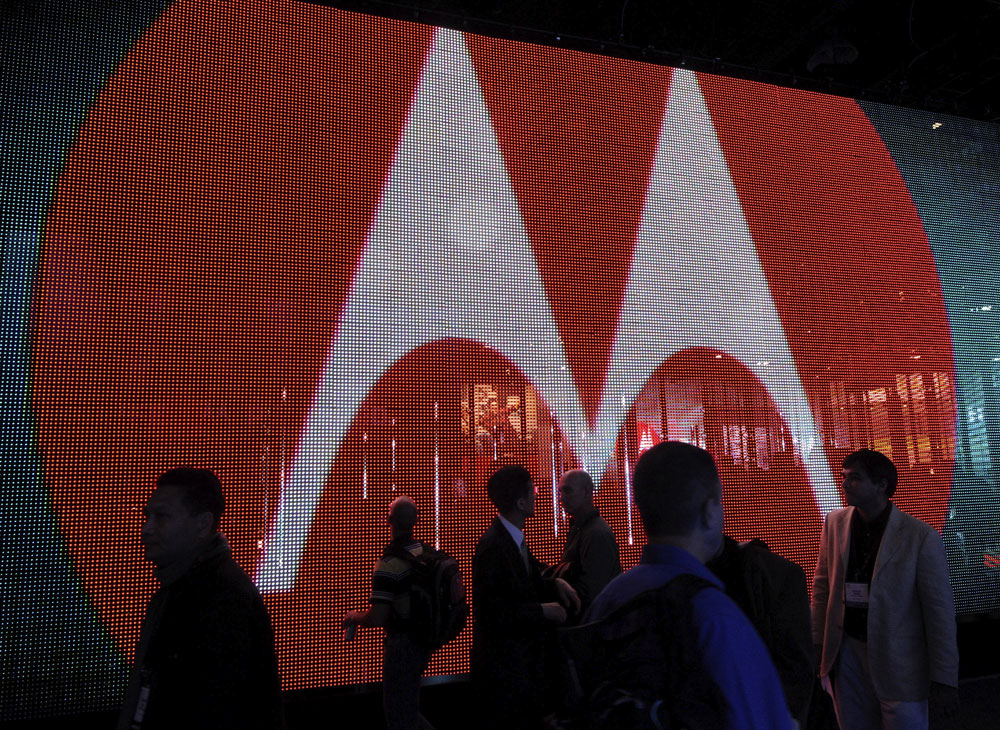
In a July 2010 lawsuit Motorola accused Huawei of stealing its SC300 base station technology. The lawsuit said former Motorola employee Pan Shaowei and colleagues Hechun Cai and Jinzhong Zhang flew to China in 2003 and handed Motorola trade secrets to Huawei CEO Ren Zhengfei. Later Pan emailed more secrets to Ren: “Attached please find those document about SC300 (CDMA 2000 1X) specification you asked.” Every page was marked “Motorola Confidential Proprietary.”
Motorola also sued Illinois firm Lemko (where Pan was chief technology officer), accusing him, Motorola employee Hanjuan Jin and others of stealing Motorola’s trade secrets and handing them to Lemko – which it alleged was working with Huawei to sell products based on stolen Motorola technology.
The suit accused Jin of downloading Motorola trade secrets and technical specifications in 2007. She did this again after returning to the U.S. She was arrested Feb. 28 that year at Chicago O’Hare International Airport trying to flee to China with $30,000 and thousands of documents, according to Motorola’s suit. She was later sentenced to four years in jail for theft of trade secrets.
The next year, Huawei sued to block Motorola from selling its networking unit, because the deal involved some Huawei technology. The two sides settled the lawsuits in 2011.
November 2010
Security threat
U.S. Commerce secretary warns Sprint Nextel against a contract with Huawei.

In November 2010, then-Commerce Secretary Gary Locke called Sprint Nextel Chief Executive Dan Hesse, asking him to stop Huawei from bidding on a $5 billion contract to upgrade its network because of national security concerns. Sprint ultimately contracted with Alcatel-Lucent, Ericsson and Samsung to do the work.
2012
Security threat
The U.S. Congressional House Intelligence Committee names Huawei as a threat.
A report to the Congress Intelligence Committee chaired by Rep. Mike Rogers (R-Mich.) named Huawei and Chinese company ZTE as threats to national security, recommending that U.S. telecom firms not do business with them. A classified report was never released.
2012
Security threat
Australia bars Huawei from tendering for broadband.
Australia barred Huawei from participating in a national broadband rollout because of national security concerns.
2012
Accused of theft
Huawei employees target Tappy, T-Mobile’s smartphone robot.

Seattle prosecutors alleged in January 2019 that Huawei employees stole T-Mobile trade secrets in 2012. They said that Huawei pressured its U.S. staff to get details about a smart-phone-testing robot named Tappy and that a Huawei employee removed the robot arm and took it home and photographed it. Huawei denies any role. It says employees acted on their own, in “a moment of indiscretion.”
A statement by the Justice Department said the FBI had obtained emails revealing that in July 2013 Huawei offered bonuses to employees for stealing information from other companies around the world and sending it to Huawei via an encrypted email address.
2012-17
Technology security risk
Huawei-installed technology at African Union headquarters was reportedly hacked for five years. Nothing to do with us, says Huawei.

Huawei installed the internet systems in the Chinese-built African Union headquarters in Addis Ababa, Ethiopia, a gift from China to the organization. In January 2018 Le Monde newspaper exposed alleged hacking of HQ servers via a back door installed in the system. For five years – from 2012 to 2017 – confidential data were transferred to Shanghai between midnight and 2 a.m. the report said. China denied any role. Ren told journalists in January, “For the breach of equipment used by the African Union, it had nothing to do with Huawei.”
2013
Accused of lying
A company linked to Huawei tried to sell equipment to Iran, leading to charges against Huawei executive Meng Wanzhou
In 2013 Reuters reported that Hong Kong-based Skycom Tech – which tried to sell Hewlett-Packard computer equipment to Iran’s largest mobile phone operator in breach of U.S. sanctions in 2010 – had close links with Huawei. U.S. fraud charges against Huawei’s Meng Wanzhou in 2019 relate to allegations she concealed this relationship from banks.
2013
Accused of spying
An ex-CIA head cites “hard evidence” Huawei spied for China.

In 2013 former CIA head Michael Hayden told the Australian Financial Review he knew of evidence that Huawei had spied for the Chinese government. He said Huawei “shared with the Chinese state intimate and extensive knowledge of the foreign telecommunications systems it is involved with.” Hayden was also a director with Motorola, which settled a court action against Huawei in 2011. Huawei denies involvement in spying.
May 2014
Accused of theft
Huawei meets a Portuguese inventor about his plug-in smart-phone camera. Next thing, the company is selling what he says is his stolen idea.
Huawei executives seemed excited when Portuguese inventor Rui Pedro Oliviera showed them his plug-in smart phone camera, in meetings May 28 and 29. They didn’t call him back about his patented invention, according to photography news website F-Stoppers. In 2017 Huawei launched a very similar plug-in smartphone camera. When Oliviera got in touch, the company said it could not deal with his complaint because he did not have a U.S. attorney. He hired one. The company denied patent infringement and criticized a Department of Justice investigation.
2017
Accused of lying
A Huawei employee alleges the company ordered him to use a fake company name to infiltrate a closed Facebook telecom meeting.

In July 2018, Jesse Hong, a former software architect at Huawei U.S. subsidiary FutureWei, Jesse Hong, sued Huawei for $105 million claiming it tried to force him and two other employees to use fake names to register for a closed 2017 telecom project meeting at Facebook headquarters to get information on competitors’ plans.
He alleged they were told to use fake U.S. company names to register because Facebook had banned Huawei from access. Hong refused and was sacked. In a court filing, published by British technology website The Register, Hong alleged a pattern of toxic workplace harassment and racial slurs by his supervisor. Huawei said the claims were “completely groundless.”
Hong alleges to have seen the two employees in possession of other companies’ trade secrets.
2017 & 2018
Accused of theft
A civil court finds Huawei stole a Californian company’s trade secrets. Then prosecutors slap criminal charges on a Chinese professor in Texas.
Huawei stole trade secrets from Silicon Valley start-up CNEX, a Texas jury found in June, after former employee Yiren “Ronnie” Huang filed suit. He alleged Huawei rewarded staff members for stealing intellectual property and kept a secret database of stolen technology. Huawei also sued him for theft, but the case was not upheld. U.S. prosecutors filed criminal charges Sep. 9 against a Chinese professor in Texas, Bo Mao, arising from the case.
January 2018
Security threat
AT&T and Verizon drop Huawei sales plans

In January AT&T and Verizon canceled plans to offer Huawei phones in the U.S. because of U.S. government security concerns, Bloomberg reports.
February 2018
Security threat
"Do not buy Huawei," says U.S. director of national intelligence.
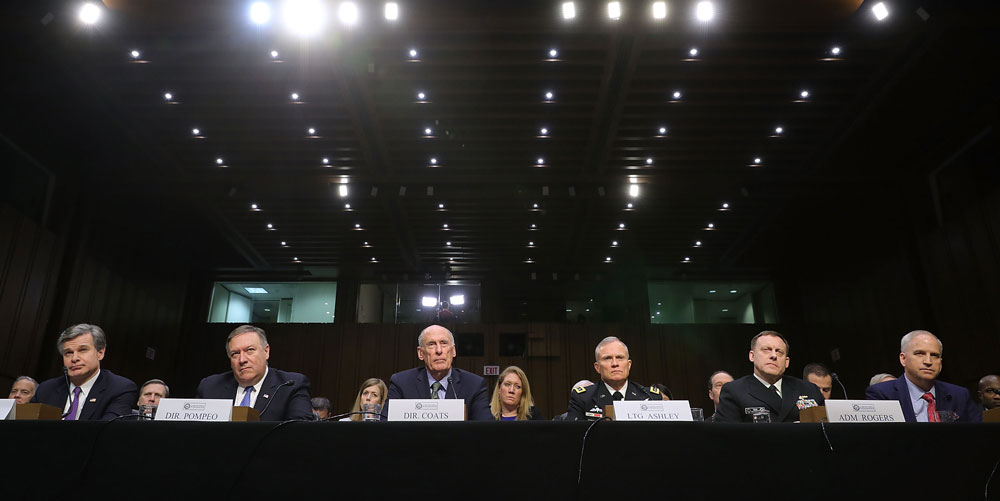
At a February 2018 hearing of the Senate intelligence committee, Dan Coats, then director of national intelligence, and and five other intelligence chiefs warned Americans to avoid buying Huawei and ZTE products for security reasons.
February 2018
Security threat
The Australian Defense Department phases out Huawei smartphones
The Australian Defense Department announced it would phase out Huawei and ZTE smartphones in February 2018 because of national security concerns, Fairfax reported.
March 2018
Security threat
The FCC warns that some communications equipment suppliers threaten national security.
The Federal Communications Commission proposed rules in March 2018 barring any U.S. company that received government subsidies for the purchase of telecommunications equipment from buying from “any company that poses a national security threat.
“Hidden 'back doors' to our networks in routers, switches — and virtually any other type of telecommunications equipment — can provide an avenue for hostile governments to inject viruses, launch denial-of-service attacks, steal data, and more,” it warned. The rules did not name Chinese companies Huawei and ZTE but the move was widely seen as aimed at them.
May 2018
Security threat
The Pentagon orders a halt to Huawei sales on military bases.

In May 2018 the Pentagon banned sales of Huawei and ZTE products on U.S. military bases, alleging an unacceptable security risk that these could be used to spy on American military personnel.
August 2018
Security threat
Australia excludes Huawei from bidding on 5G.
In August 2018 Australia barred Huawei from bidding to participate in Australia’s 5G network on grounds of national security. Australia is part of the “Five Eyes” intelligence sharing network, which also includes the U.S., New Zealand, Canada, and Britain.
August 2018
Accused of theft
A musician accuses Huawei of giving away his song to millions of people.
In November 2018, a California musician named Paul Cheever, known as The Cheebacabra, sued Huawei after he realized the company had loaded his song “A Casual Encounter” onto its phones and given it away without his permission to millions of people. The case is currently before the courts.
November 2018
Security threat
A New Zealand company says it is blocked from using Huawei in 5G.
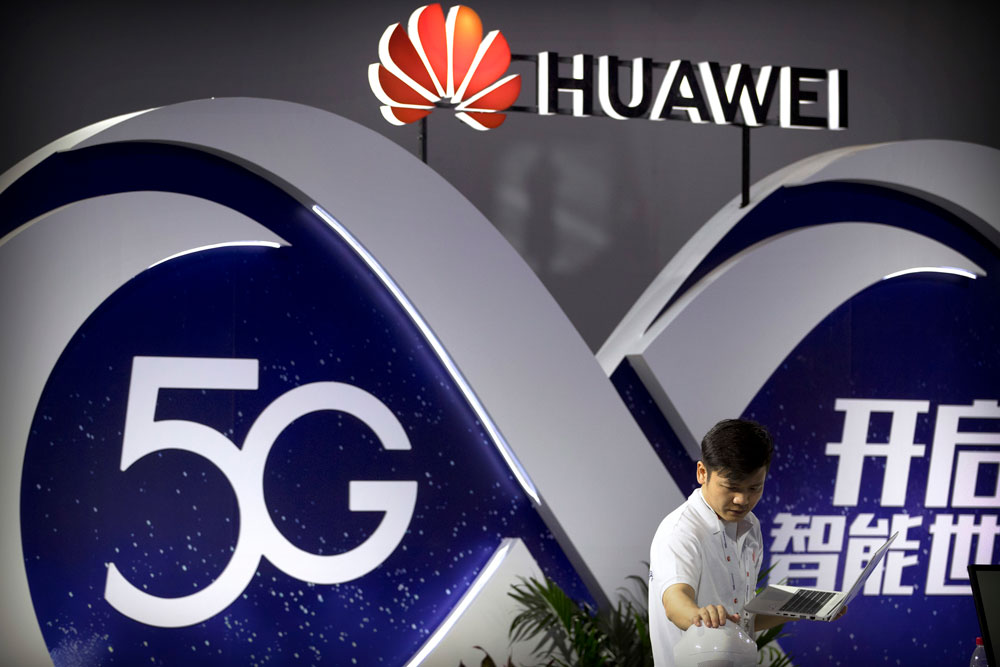
In November 2018 New Zealand, another member of the “Five Eyes’ intelligence sharing network, excluded Huawei from participating in the 5G rollout because of national security concerns according to local telecommunications company Spark New Zealand, which announced it had been blocked from using Huawei by the Government Communications Security Bureau.
December 2018
Security threat
Czech cybersecurity agency names Huawei as a security threat.
The Czech cybersecurity agency warned against using equipment manufactured by Huawei and ZTE because they posed a threat to state security, Reuters reported.
“China’s laws, among other things, require private companies residing in China to cooperate with intelligence services, therefore introducing them into the key state systems might present a threat,” a statement issued by the Czech National Cyber and Information Security Agency said.
January 2019
Accused of espionage
A Polish Huawei employee is arrested on suspicion of spying
In January Polish police arrested Wang Weijing, a Chinese employee of Huawei, and a former Polish security official Piotr Durbajlo on suspicion of spying for China. Huawei denied any knowledge of Wang’s actions and sacked him saying he brought the company into disrepute. Wang, formerly an attaché at the Chinese consul-general in Gdansk, joined Huawei in 2011 as public relations manager.
February 2019
Accused of bad business practices
A U.S. company invented “diamond glass” for smartphones. It says Huawei “appears to” have stolen it.
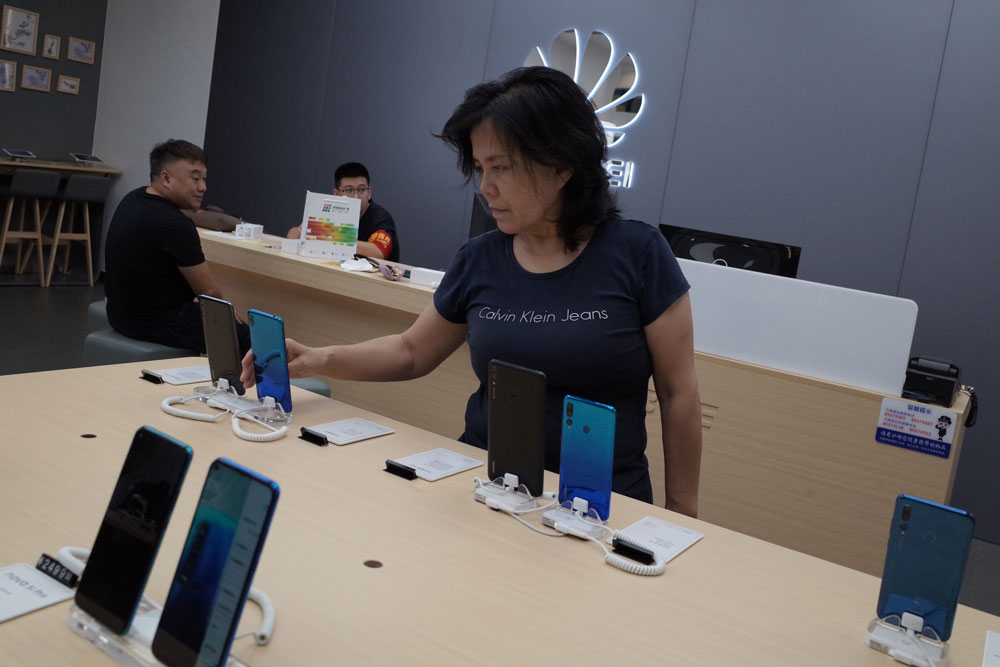
U.S. company Akhan Semiconductors developed a “diamond glass” screen for smart phones and sent samples to Huawei and other companies, according to the company. In January the FBI investigated after Huawei returned the glass late, broken and with a piece missing. “Akhan believes that Huawei destroyed our product, shipped it to China without authorization, subjected it to tests that it was not authorized to conduct, and returned most of it to us in pieces,” a recent company statement said.
April 2019
Accused of bad business practices
A paper published in the SSRN argues that Huawei is not an "employee-owned" company
A study by professors Christopher Balding and Donald Clarke published April 17, 2019, argues Huawei is effectively state-owned because it is 99% owned by a "trade union committee." Trade unions in China are controlled by the government. The study undermines Huawei's long-held assertion the company is employee-owned.
May 2019
Security threat
The U.S. bars companies from doing business with Huawei without government permission.
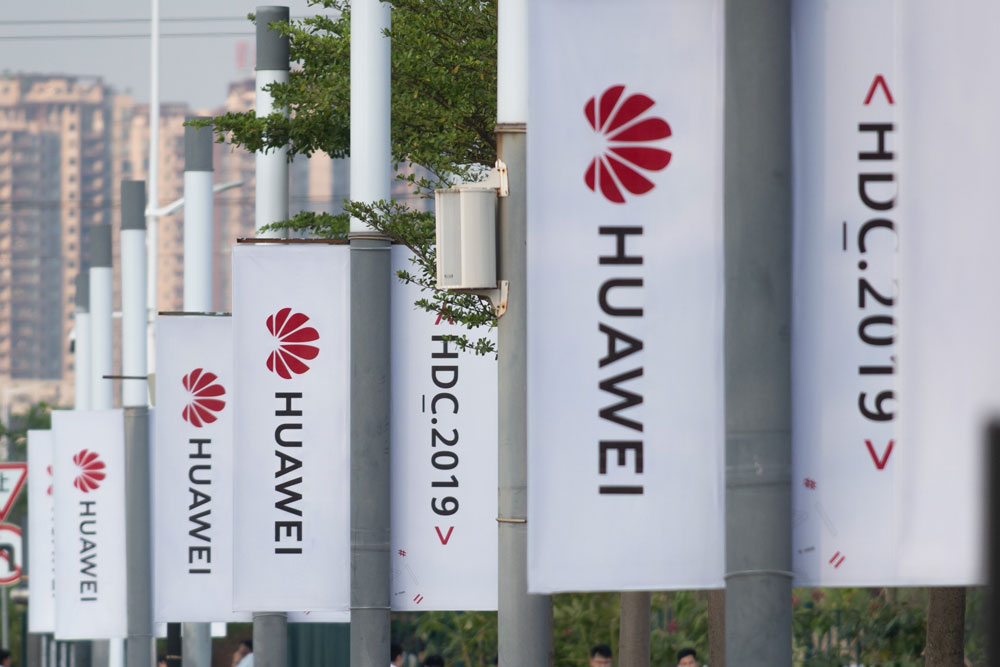
The Trump administration barred U.S. companies from supplying components and software to Huawei without government permission. Trump also signed an executive order enabling U.S. authorities to block U.S. companies from doing business with foreign companies deemed to be a security threat. Google, Qualcomm, Intel and ARM suspended business with Huawei to comply with the ban. The administration recently delayed full implementation of the ban until next year to give U.S. companies time to adapt. More than 100 Huawei affiliates have also been banned.
Huawei says the ban is “politically motivated.”
June 2019
A report by Finite State finds serious cybersecurity vulnerabilities in Huawei devices
Finite State, a cyber security firm based out of Ohio, published a study assessing the cybersecurity-related risks embedded within Huawei devices through analyzing Huawei firmware. The study looked at 1.5 million files embedded within nearly 10,000 firmware images, and found that more than half of them were vulnerable to backdoor access. Researchers found that Huawei devices had substantially worse security than similar devices from other companies, and the study states that Huawei engineers were choosing to use 20-year-old versions of software libraries rather than current, secure alternatives."
Huawei has since disputed the findings of the report, saying it "does not tell the whole story."
August 2019
Accused of bad business practices
Huawei denies a report that its employees helped Ugandan and Zambian cybersecurity police track political opponents.
A Wall Street Journal investigation published in August found that Huawei employees helped Ugandan and Zambian cybersecurity police spy on encrypted communications and social media posts of political opponents. In a legal letter, Huawei lawyer Steven Friedman called the report reckless and defamatory and said “the article is neither a fair nor a responsible representation of Huawei’s legitimate business activities in these countries.” The governments of Uganda and Zambia denied the report.
November 2019
Government intervention
The Chinese ambassador to Denmark reportedly threatens to cancel a trade deal over a dispute about Huawei
Danish media reported that the Chinese ambassador to Denmark threatened to cancel a trade deal with the Faroe Islands, a self-governing territory owned by Denmark, if the territory didn't agree to use networks supplied by Huawei. The reports cited a Nov. 15 audio recording of a hot mic conversation between the trade minister for the islands and an aideinjunction, who reportedly told the minister about the threat. A court issued an preventing the recording's release. According to the Danish publication Berlingske, the threat marks “the first instance where the Chinese government has linked access to its huge market to Huawei being awarded contracts for 5G networks.” Huawei has stated that it is a private company with no ties to the Chinese state.
November 2019
Government intervention
FCC votes to deny subsidies to carriers using equipment from Huawei and ZTE
The Federal Communications Commission, which has $8.5 billion earmarked to help carriers improve communications infrastructure, voted unanimously to deny funds to carriers that work with Huawei and ZTE, citing national security concerns. The ban will not affect large service carriers like Verizon or AT&T, which do not use government subsidies, but will likely have an impact on smaller carriers that operate in more rural areas. “We take these actions based on evidence in the record as well as longstanding concerns from the executive and legislative branches,” said Chairman Ajit Pai in a statement.
December 2019
Legal action
Huawei files a lawsuit against the FCC, hoping to overturn the November ban
Huawei filed a petition in the U.S. 5th Circuit Court of Appeals asking to render the FCC's November ruling unlawful because "it fails to offer Huawei required due process protections in labeling Huawei as a national security threat." In a news conference the day the suit was filed, Huawei Chief Legal Officer Song Liuping said that FCC Chairman Ajit Pai failed to provide evidence that Huawei posed a security threat. “This is a common trend in Washington these days,” he said. “The FCC’s order violates the Constitution, and we have no choice but to seek legal remedy.”
Robyn Dixon, David Cloud and Alice Su contributed to this report.

